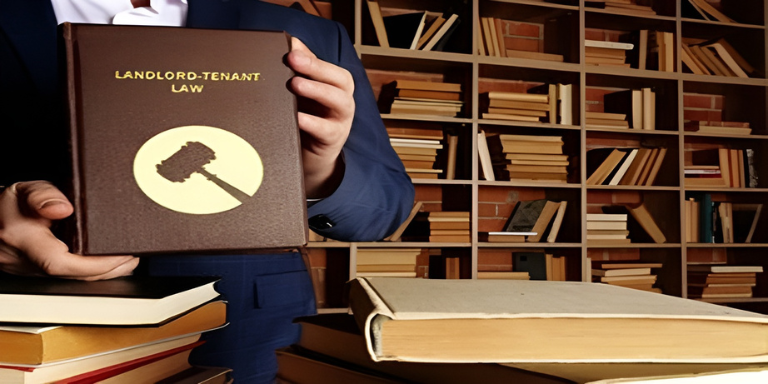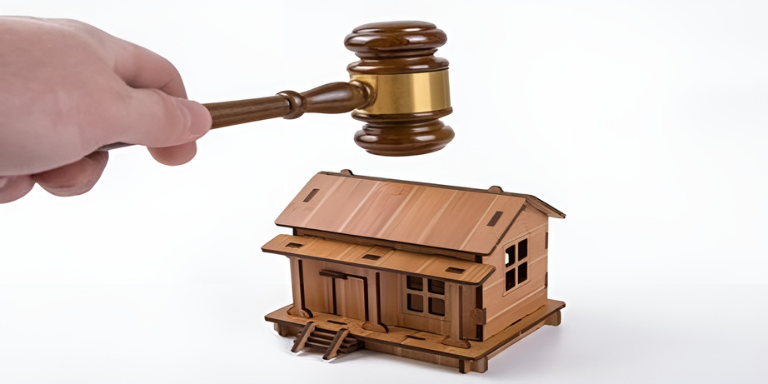I. Introduction of Landlord tenant attorney
Overview of landlord-tenant relationships
A landlord-tenant attorney specializing in landlord-tenant disputes, lease agreements, evictions, rent), and other issues involving property in general. A landlord-tenant attorney can provide much-needed help whether you are a landlord wanting to enforce the terms of a lease or a tenant seeking protection against an illegal eviction or discrimination. They are familiar with complicated landlord-tenant laws and can perform services customized to your requirements, ranging from rental agreement assessment to court representation. Thus, these lawyers make certain that both the parties are complying with the state rules and the property laws which is how a judicial relationship is maintained. Talk to a Tenant Rights Attorney: Your issue could be a landlord-tenant dispute, and having a tenant rights attorney by your side can help you protect your rights and arrive at a feasible solution.
II. The Role of a Landlord-Tenant Attorney
A. Definition and responsibilities of a landlord-tenant attorney
A landlord-tenant attorney is a lawyer with expertise beyond the generalities of many landlord-tenant laws. Essentially, they’re designed to help landlords or tenants whose lease, eviction, upkeep, rent, or any other rental agreement doesn’t go according to plan. These lawyers are familiar with landlord-tenant rules and will teach them with regards to their entitlements and responsibilities while collaborating them with draft leasing, a person evictions, deposit disputes, and unjust perform assertions. A landlord-tenant lawyer, for landlords, ensures the landlord is acting within the parameters of the law, while also assisting with any potential disputes that may arise in the most efficient way possible. They advocate for tenants protection from discrimination by local and federal law. What’s worse: a landlord tenant attorney is necessary to keep the balance in the rental relationship, whether it be an eviction notice, insufficient circumstances of the property, or questions on a lease.
B. Services offered by landlord-tenant attorneys
1. Legal advice and consultation
Whether you are a landlord or tenant who has questions about rental law and property disputes, legal advice and consultation from a landlord-tenant attorney can be helpful. With an expert attorney, direct meetings are available to assist clients in developing an awareness of their legal rights and obligations and to ensure that they are complying with the numerous local and federal Housing Regulations. Landlords can benefit from an attorney who can draft lease agreements, serve eviction notices, and help minimize legal pitfalls on issues like property maintenance. Meanwhile, tenants receive consultations on issues such as security deposits, lease violations, and attempts at improper eviction. From minor disputes to complex litigation, landlord-tenant attorneys offer clear and actionable advice while helping clients navigate the legal system with the goal of achieving fair outcomes and appropriately balanced landlord-tenant relationships.
2. Representation in disputes
A landlord-tenant attorney can also act on behalf of tenants and landlords in a dispute. They address topics related to nonpayment of rent, breach of warranty of habitability, repairs, eviction, and return of security deposit. They are versed in landlord-tenant law and either advocate for tenants facing illegal eviction or seek to ensure landlords are accurately paid rent. As a landlord-tenant attorney is knowledgeable, they are able to offer their client the legal options available to them, allowing for resolution through negotiation, mediation or litigation. Utilizing these can help clients avoid many pitfalls and keep them legally protected from rental business disputes at the local and state levels.
3. Assistance with lease agreements and evictions
For leases and evictions, a landlord-tenant attorney makes sure that all of the legal steps are followed along with the rental process going easily and legally. For landlords, these lawyers prepare and negotiate leases for their property interests while ensuring that these agreements conform to local law. This involves covering aspects of rental agreements, property maintenance, tenant duties, and lease renewals. If an eviction becomes necessary, a landlord-tenant attorney will assist clients with navigating the complicated eviction process, providing notice requirements, handling legal filings, and court representation if necessary. For tenants, these lawyers help explain lease agreements and fight against wrongful evictions. The more nuanced arrangements are as well as the representation that is provided to each tenant and landlord through lease and eviction matters through the provision of assistance by a landlord-tenant lawyer with expertise.

C. Importance of hiring an attorney for both landlords and tenants
III. Accessing Free Legal Resources
A. Availability of free landlord-tenant attorneys
Landlord-tenant attorneys provide low-cost or no-cost assistance to tenants and, in certain instances, landlords. Low-income people facing eviction, a rent dispute, or an issue with property maintenance can find a free or low-cost landlord-tenant attorney through many legal aid organizations and nonprofit groups. Such services are usually funneled through local community initiatives or state-run legal support networks. A no-cost landlord-tenant lawyer can help you write your rebuttals to eviction notices, inform you about the lease, or defend a renter’s rights in the courtroom. Free legal help is vital for tenants to avoid being treated unfairly and to protect housing rights, whilst landlords burdened with vexatious claims can also get help. A free landlord-tenant lawyer means that you can have access to this crucial representation when you need it most.
B. Organizations and resources providing free legal assistance
If you are dealing with a landlord-tenant problem and cannot afford a lawyer, there are many organizations and resources to help you get legal assistance for free. Legal aid societies, such as Legal Services Corporation (LSC) and legal aid organizations in your state, provide low-cost or no-cost legal services for people who qualify. Local housing authorities and tenant rights organizations also advise you about landlord-tenant issues that involve evictions, repairs, and rental agreements. The National Housing Law Project is one of those nonprofit groups that focuses on teaching tenants about their rights and referring them to legal services if they require assistance. Moreover, many state bar associations feature pro bono programs that provide referrals to volunteer attorneys who have landlord-tenant law experience. Such resources are crucial to tenants and landlords who require assistance in avoiding rights violations and dispute resolution at an affordable cost.
C. Benefits of utilizing free legal services for low-income individuals
This provides a myriad of benefits for low-income individuals who, because they cannot afford traditional legal representation, would otherwise not get access to essential legal services. Such services offer specialist advice in important areas such as housing, employment, family law, and public benefits to arrange for affordable legal difficulties without any expense involved. Free Legal Aid Helps Low-income people exercise their rights better, from wrongful evictions to receiving what is owed to them in wages and answering their legal disputes. This support provides communities, alleviates economic pressure, and helps ensure they receive proper treatment by and under the law. Additionally, pro bono legal services often connect individuals with community resources, reinforcing the surrounding support of the person in need. In places of such financial strain, the availability of free legal aid makes all the difference when it comes to ensuring access to justice and long term security of tenure.
IV. Conclusion of Landlord tenant attorney
Finally, a landlord-tenant attorney can be extremely helpful for the following types of legal disputes between landlords and tenants. From eviction matters to lease disputes and tenant rights, an experience attorney can help guide and represent you to ensure your best interests are protect. A landlord-tenant attorney knows the local laws and can handle conflict quickly to reduce stress and legal costs. Proper assistance allows landlords to protect their property rights while tenants can protect their housing rights. Success in resolving any dispute relies on choosing the right landlord-tenant attorney. If you are struggling with a rental, an experienced attorney can help to provide peace of mind and concrete solutions to complicated landlord-tenant relationships.
Frequently Asked Questions (FAQ’s)
What does a landlord tenant attorney do?
Landlord-tenant attorney handles disputes between landlords and tenants. Lease problems, eviction suits, complaints over upkeep, rent delays, security deposits or alleged violations of the housing code are all matters they know how to set straight. Attorneys can advise the landlord or tenant and provide assistance with any legal proceedings to the landlord or tenant.
Can a tenant landlord pay attorney fees?
Yeah, one can have from one side hire attorney or can be hired for attorney fees either the tenant or the landlord. In some instances, a lease will state who pays for attorney fees if there is a dispute. In certain states, if the tenant wins, the landlord may be responsible for paying their attorney fees (and vice versa — this varies by state and the particulars of each case).
Can attorney in fact act in landlord tenant court?
Correct, an attorney-in-fact can stand in for the landlord or tenant at landlord-tenant court as long as they have been designated as such via power of attorney (POA). This indicates that they have the legwork powers to act to the benefit of the individual being represent. That said, different jurisdictions may be limit in this regard, so it is always best to refer to your local court rules.
Do i need an attorney for dc landlord tenant court?
An attorney is not require to attend landlord-tenant court DC but is advisable in more complicate cases. Landlord-tenant laws are complicate, so if you have an attorney on your side, your attorney can make sure your rights are protect, advise you on the legal process, and improve your chance of winning your case.
Do landlords need an attorney to help with tenant eviction?
Attorneys need to generally follow local laws and in a great deal of venues landlords do not need to own or keep a legal professional for tenant evictions. The evictions process has its own unique legal requirements, failure to meet those requirements simply delay the process, or worse, case dismissal. An attorney can also be helpful in making sure the eviction is handle legally and that the landlord does everything by the book.

